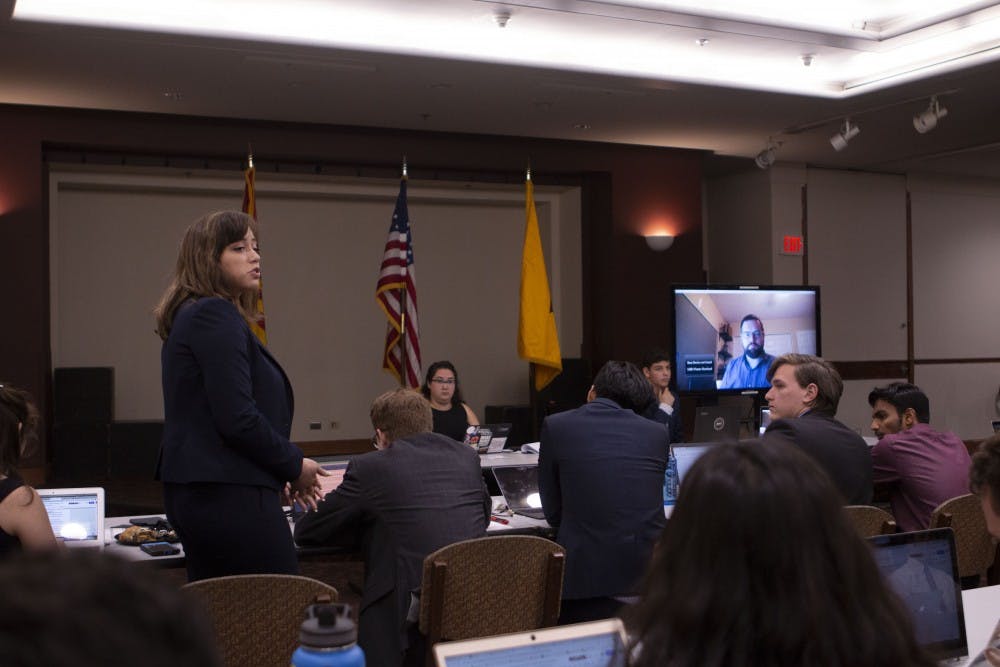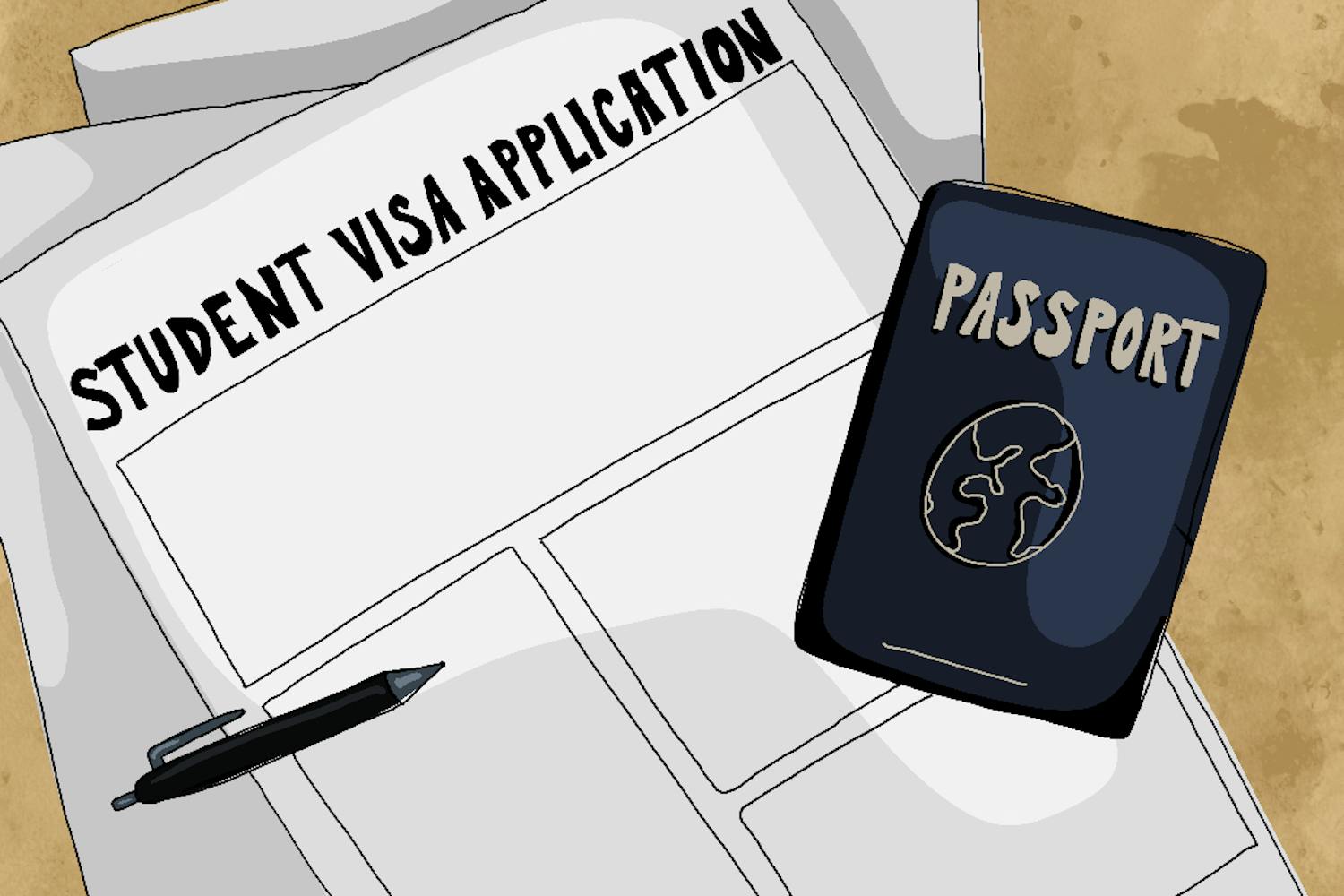The Undergraduate Student Government Tempe senate passed a resolution on Tuesday calling on the Office of the University Provost to hire an external investigator to assess claims of unethical conduct within the economics department.
Last week, clinical assistant professor Brian Goegan sent an email to students to explain two alleged policies by the economics department that he deemed unethical.
In the email, Goegan, whose teaching contract was not renewed for the next academic year, claimed that the University's economics professors were required to fail "at least 30%" of students in ECN 211, 212 and 221.
"We were told that we needed to set a baseline against which the Provost's project could be compared," Goegan wrote. "For many instructors, this meant setting students up to fail so it could seem like the Provost swooped in and fixed a problem that doesn't exist."
Goegan also claimed that ASU had made a deal with the online education company Cengage to require students to pay for a subscription to turn in their homework, and that Cengage would award the University a grant in exchange.
Read more: ASU denies viral claims that it purposely failed economics students
The University has since denied the claims, saying in a statement published online that students are not required to pay to submit homework, but that "all ECN 211 and 212 professors are required to use the Mankiw texts and accompanying MindTap learning platform, which are bundled together for ASU students at a discounted price of $93."
The statement also argued that the alternatives Goegan suggested, such as using Blackboard or Canvas to submit homework and getting the textbook from a non-University vendor, would actually cost students more and would cause them to lose out on MindTap's features.
The statement also said that "ASU never requires a professor to fail a certain percentage of students," and that the economics department discussed grading practices with Goegan because "he consistently awarded a huge percentage of A and B grades, as compared to the same classes when taught by other professors in his department."
In the days following, Alex Baker, USGT vice president of policy and a senior majoring in business data analytics, published the contract that ASU has with Cengage on Reddit, discussing its potential implications in the same post.
The contract between ASU and Cengage was initially acquired by AZ Family through a public records request.
Baker said that he reposted the information because he thinks it is important for students to have all the facts available to them before drawing conclusions.
"This is information that deserves to be vocalized in the public eye," Baker said before the USGT senate meeting where it passed Senate Resolution 15. "I don't want the University spinning solely from their perspective, I want the document publicly available."
In response, USGT's resolution is calling for the University to launch an investigation into the claims.
Goegan appeared over a video call at the USGT senate meeting and explained that he sent the email to students with the hopes that they would take action.
"I brought this to students, because I need you guys to force (the University) to actually investigate these claims," Goegan said.
Nicole Morote, USGT senate president pro tempore and a sophomore majoring in marketing, explained to the audience during the meeting that the goal of the legislation is to find more information regarding the allegations.
"This piece of legislation is just meant to call for answers," said Morote, a sponsor of the legislation. "All that we want is to make sure that there are answers that are clear and accessible to students."
Baker said he supported the resolution because of the way it did not accuse any party of wrongdoing.
"It asks for meaningful and tangible action that can be granted without the condemnation of anyone in particular," Baker said.
During debate on the resolution, Ryan Magel, a senator for The College of Liberal Arts and Sciences and a junior majoring in political science, recalled his own experience with Cengage software in his economics class.
"This is a larger issue than it was initially let on to be. My freshman year, I took an economics course and my adjunct professor brought this issue up," Magel said. "They actually brought up that they thought it was unethical and immoral that the University was requiring us to use Cengage."
In addition to calling for an internal investigation, the resolution supports the release of financial statements, revenue streams and expenditures by the economics department and the W. P. Carey School of Business.
The purpose of this is to allow students to read the documents themselves, and come to their own conclusions on the relationship between Cengage and ASU.
Additionally, USGT is calling on the University to either create or assign a supervisory body with direct student input the ability to "approve or deny the usage of any external homework submission platform with cost to students greater than $50."
Finally, the resolution asks the Provost's Office and W. P. Carey Dean Amy Hillman to publicly respond, state their intent to launch an external investigation and provide a comparison of grade distribution between traditional and adaptive learning courses.
Reach the reporter at krquaran@asu.edu and follow @kiaraquaranta on Twitter.
Like The State Press on Facebook and follow @statepress on Twitter.




